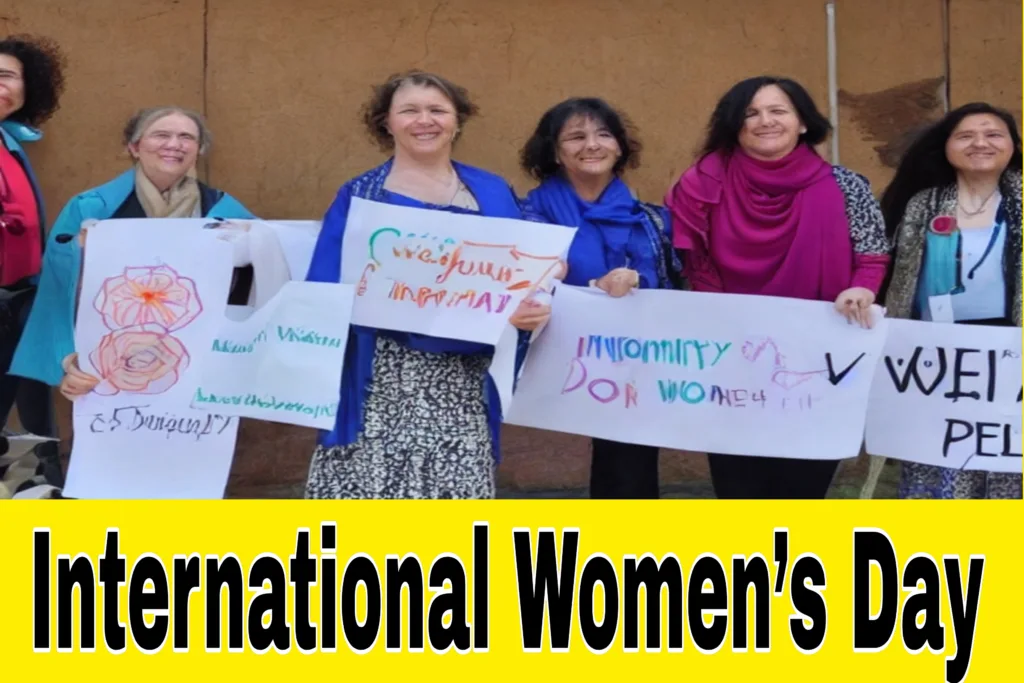International Women’s Day (IWD) is celebrated globally on March 8th each year to honor the social, economic, cultural, and political achievements of women. It is also a day to raise awareness about the ongoing fight for gender equality and women’s rights.
History and Origin
The roots of International Women’s Day trace back to the early 20th century when the socialist movement started advocating for women’s rights and suffrage. The first National Women’s Day was observed in the United States in 1909, and in 1910, Clara Zetkin proposed the idea of an international day to celebrate women and their contributions at the International Conference of Working Women.
Significance of International Women’s Day
International Women’s Day holds immense significance in highlighting the progress made towards gender equality while acknowledging the challenges that still exist. It serves as a reminder of the need for continued efforts to empower women and create a more inclusive society.
Theme for International Women’s Day 2024
Each year, International Women’s Day is marked with a specific theme to focus attention on particular areas of concern. The theme for 2024 is “Breaking the Bias: Achieving Gender Equality in a Post-Pandemic World.” This theme aims to address the disproportionate impact of the COVID-19 pandemic on women and the urgent need to eliminate gender biases in all aspects of life.
Achievements and Progress in Gender Equality
Over the years, there have been significant achievements in advancing gender equality. Women have made strides in various fields, including politics, business, science, and sports. However, there is still much work to be done to achieve true equality.
Challenges and Issues Faced by Women Globally
Despite progress, women continue to face numerous challenges worldwide. These include gender-based violence, unequal Obtaining educational and healthcare resources, addressing wage disparities, and ensuring equitable representation in leadership positions are critical aspects of societal progress. International Women’s Day provides an opportunity to address these issues and advocate for change.
Celebrations and Activities on International Women’s Day
International Women’s Day is celebrated in various ways across the globe. Events, rallies, conferences, and cultural performances are organized to honor women’s achievements and raise awareness about gender equality. Social media campaigns and hashtags also play a significant role in amplifying the message of empowerment.
Importance of Women Empowerment
Empowering women is crucial for achieving sustainable development and creating a more just and equal society. When women are given equal opportunities and rights, they contribute to economic growth, social progress, and peace-building efforts.
Recognizing Women Leaders and Role Models
International Women’s Day provides an opportunity to recognize and celebrate the contributions of women leaders and role models who have made a positive impact in their communities and beyond. Their stories inspire future generations to break barriers and pursue their dreams.
Promoting Gender Equality in Education and Workplace
Education and employment are fundamental rights that empower women and girls. Efforts to promote gender equality in education and the workplace are essential for breaking down barriers and ensuring equal opportunities for all.
Impact of International Women’s Day on Society
International Women’s Day serves as a catalyst for social change by raising awareness, mobilizing action, and fostering dialogue on gender equality issues. Its impact extends beyond a single day, inspiring ongoing efforts to create a more equitable world.
Ways Individuals Can Support Women’s Rights
There are many ways individuals can support women’s rights and gender equality, including advocating for policy changes, challenging stereotypes and biases, promoting women’s voices and leadership, and supporting organizations that work towards women’s empowerment.
Global Initiatives for Women’s Empowerment
Numerous global initiatives and campaigns are dedicated to advancing women’s rights and empowerment. These include UN Women, HeForShe, Girl Up, and the Global Fund for Women, among others. Supporting these initiatives is essential for driving progress towards gender equality.
Future Outlook: Goals and Aspirations
Looking ahead, the goal is to build on the momentum of International Women’s Day and continue working towards a future where every woman and girl can live free from discrimination and violence, and fully realize their rights and potential.
Conclusion
International Women’s Day is a time to reflect on the progress made towards gender equality, celebrate the achievements of women, and recommit to the ongoing fight for women’s rights. By breaking the bias and working together, we can create a more inclusive and equitable world for all.
FAQs
What is the history behind International Women’s Day?
International Women’s Day originated from the early 20th-century labor and socialist movements, with the first observance taking place in 1911.
Why is International Women’s Day significant?
International Women’s Day is significant as it highlights the achievements of women, raises awareness about gender equality, and advocates for women’s rights globally.
How can individuals contribute to gender equality on International Women’s Day?
Individuals can contribute to gender equality by promoting women’s rights, challenging stereotypes, and supporting initiatives that empower women.
What are some challenges faced by women globally?
Women face challenges such as gender-based violence, unequal access to education and healthcare, and underrepresentation in leadership roles.
What role do global initiatives play in advancing women’s rights?
Global initiatives like UN Women and HeForShe play a crucial role in advocating for women’s rights, supporting empowerment programs, and driving progress towards gender equality.

